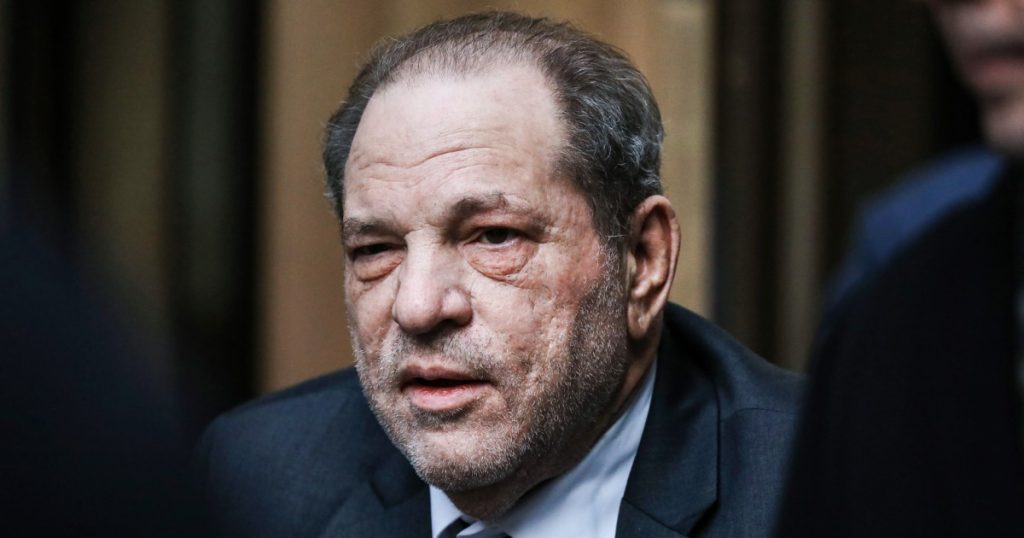Harvey Weinstein’s legal team found hope in 2018 when Bill Cosby’s indecent assault conviction was overturned by Pennsylvania’s top court. This raised expectations for Weinstein’s own appeal, especially since Cosby’s conviction was overturned due to issues with evidence and due process. Weinstein’s conviction was overturned by a New York appeals court, but he remains in prison due to a separate conviction in Los Angeles. Cosby’s spokesperson emphasized the importance of due process for all Americans regardless of wealth or status.
Weinstein’s lawyer, Duncan Levin, acknowledged similarities between Weinstein’s and Cosby’s cases, noting that the courts are sending a message about the importance of due process. Weinstein, 72, has been serving a 23-year sentence in New York for criminal sex acts and rape. The appeals court found that the trial judge made improper rulings, including allowing witnesses to testify about allegations not directly related to the case. Legal experts have differing opinions on the court’s decision, with some arguing it undermines the credibility of victims and the #MeToo movement.
Deborah Tuerkheimer, a law professor at Northwestern University, highlighted the challenges in prosecuting gender-based crimes and the importance of fairness in legal proceedings. Michelle Madden Dempsey, a law professor at Villanova University, criticized the appeals court’s reasoning, suggesting it could retraumatize victims and undermine efforts to hold perpetrators accountable. The Manhattan district attorney’s office has indicated it will seek to retry Weinstein’s case despite the appellate court’s decision.
Despite the successful appeal in New York, Weinstein’s conviction in Los Angeles still stands, underscoring the complexities of prosecuting high-profile cases involving powerful individuals. Legal experts stress the need for systemic reform to ensure justice for victims is not compromised. Cheryl Bader, a former federal prosecutor, noted that the accusers’ credibility was not the reason for the overturned convictions in the Weinstein and Cosby cases, suggesting that more focused prosecution strategies could have been beneficial.
The overturning of Weinstein’s conviction, following Cosby’s overturned conviction three years prior, reflects the challenges in securing convictions in cases involving influential figures. The impact of these decisions on the #MeToo movement and victims’ perception of the legal system remains a point of concern for legal experts. Bader highlighted the need for victims to contextualize the court’s rulings and emphasized the importance of a fair and thorough legal process in cases involving sexual misconduct. Despite the setbacks for victims in these high-profile cases, efforts to hold perpetrators accountable must continue with a focus on ensuring justice and support for survivors.













